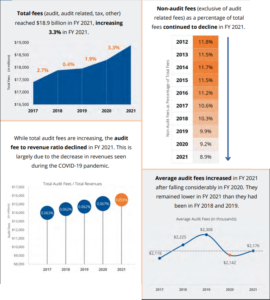Gary Gensler is Chair of the U.S. Securities and Exchange Commission. This post is based on his recent public statement. The views expressed in this post are those of Chair Gensler, and do not necessarily reflect those of the Securities and Exchange Commission or the Staff.
Today, the Commission will consider whether to adopt final amendments to bring greater detail, consistency, and usability to the proxy voting information reported on Form N-PX. I am pleased to support these amendments because, if adopted, they will allow investors to better understand and analyze how their funds and managers are voting on shares held on their behalf. Further, part of this final rule fulfills a mandate from Congress directing the SEC to require institutional investment managers to report votes on certain executive compensation matters, or “say on pay.”
Form N-PX was first adopted in 2003 with a basic principle: that investors be informed of how funds voted shares held on their behalf. These proxy votes include voting on boards of directors, merger proposals, or other matters.
Before adopting Form N-PX in 2003, funds didn’t have to disclose their proxy votes. In the two decades since, investors have said they would benefit from more readily usable information, and from more information.
Thus, today’s rule addresses these concerns in three key ways. First, it amends Form N-PX to provide investors with more detailed information about proxy votes. Second, it establishes 14 standardized categories in Form N-PX, creating more consistency around how funds describe their proxy votes. Third, it structures Form N-PX in a machine-readable format so that investors can analyze this information electronically.
This rulemaking also will require institutional investment managers to disclose how they voted on “say-on-pay” matters, which fulfills the mandate under section 951 of the Dodd-Frank Act of 2010. Additionally, the amendments require filers to disclose the number of shares that they’ve loaned to short sellers and others but not recalled, and thus were not voted by the filer. This would provide investors with additional information into how a filer’s securities lending activities may affect its proxy voting.
Together, these enhancements to Form N-PX would make it more useful, and more usable, to investors.
We benefited from more than 50 comments from the public during the rulemaking process. In particular, based on this feedback, the final version of this rule reduced the number of categories on the form and streamlined the filing process for funds and managers who have a stated policy of not voting on proxies. These changes from the proposal will make the filing process more efficient.
I am pleased to support today’s final amendments. I’d like to thank the members of the SEC staff who worked on this rule, including:
- Christian Corkery, David Driscoll, Nathan Schuur, Tim Dulaney, Trevor Tatum, Bradley Gude, Angela Mokodean, Brian Johnson, Sarah ten Siethoff, and William Birdthistle in the Division of Investment Management;
- Hanna Lee, Andrew Glickman, PJ Hamidi, Gregory Scopino, Alex Schiller, Julie Marlowe, Michael Willis, and Jessica Wachter in the Division of Economic Risk and Analysis;
- Bob Bagnall, Amy Scully, Natalie Shioji, Malou Huth, and Meridith Mitchell in the Office of the General Counsel;
- Mavis Kelly and Song Brandon in the Division of Examinations;
- Corey Schuster and Andrew Dean in the Division of Enforcement; and
- Dan Chang in the EDGAR Business Office.

